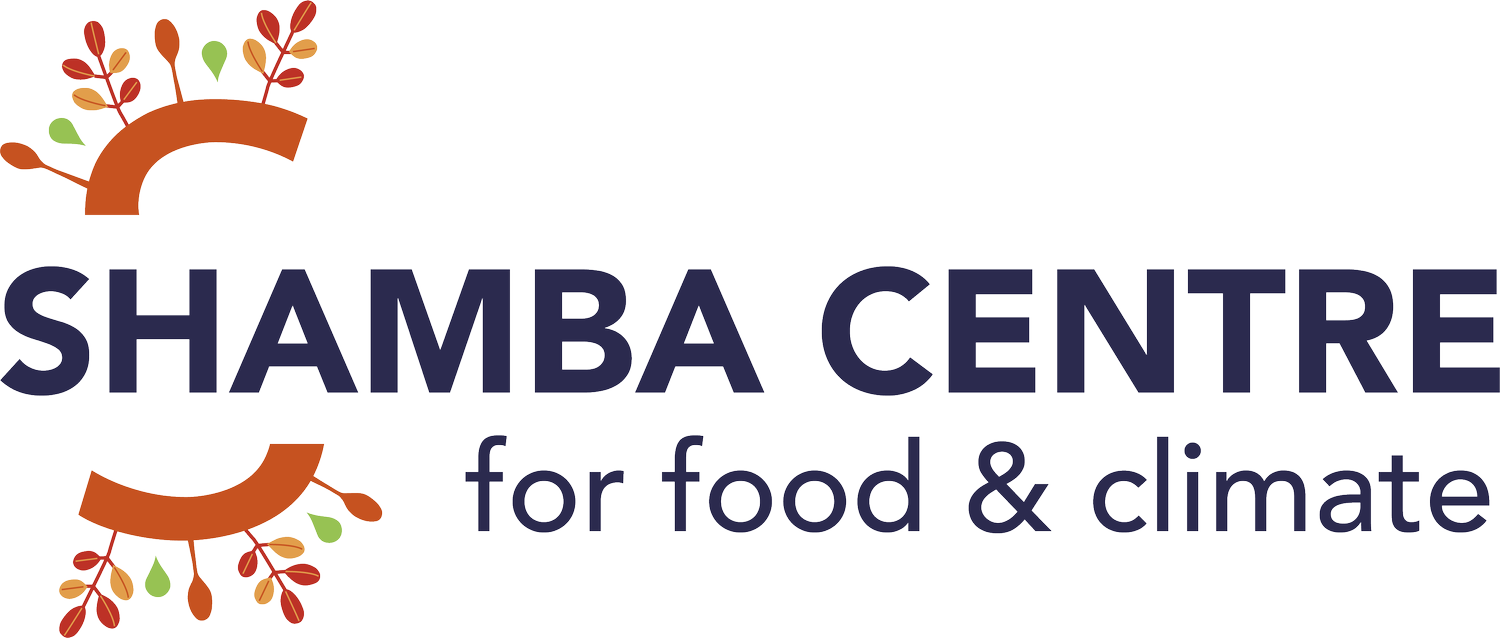Shamba Centre for Food & Climate celebrates its first-year anniversary
October 2023 marks the first year of activity for the Shamba Centre for Food & Climate. This milestone culminates a year of tremendous growth and has been celebrated with the opening of a new office in Kigali, Rwanda.
Since its launch last year, the Shamba Centre has coordinated the work of two international coalitions, co-founded the project Hesat2030 alongside the FAO and University of Notre Dame, and undertaken innovative research on topics covering food systems transformation, finance, competition and the blue economy.
“This has been an amazing year for the Shamba Centre. Since our launch, we have led 12 projects that ultimately explore how we can disrupt our current food system. Through the Zero Hunger Coalition we have worked with our partners to advance food system transformation in Madagascar and Zambia and helped mobilize a further USD 75 million for the Zero Hunger Private Sector Pledge,” states Carin Smaller, Co-founder and Executive Director of the Shamba Centre.
As Francine Picard, Co-founder and Director of Partnerships, notes, “We have put in place the solid foundations to help countries implement food system transitions that address nutrition, gender, income and the environment. Our network brings together participants across the full agri-food value chain, from small producers and farmers to donor governments, researchers, policy makers and members of government.”
According to Oshani Perera, Co-founder and Director of Programmes, “We need to understand that food and agriculture are part of a larger, dynamic system. This means weaving together multiple issues such as finance, sovereign debt, climate change and nature-based solutions. These are just a few of the many areas we will continue to explore in the years ahead.”
Since its launch, the Shamba Centre has increased its size from three Co-founders and one staff member to now bringing together an 18-person team with further vacancies to be filled by the end of the year. In addition to its office in Kigali, the Shamba Centre has an office in Geneva, Switzerland.
As Carin concludes, “I never imagined the amount of work a small group of committed individuals could deliver in such a short amount of time. Every day, I am inspired by the energy, resourcefulness and dedication of our team and look forward to seeing what we accomplish over the next year. This is just the beginning.”
First year highlights
Below, an overview of the projects undertaken by the Shamba Centre for Food & Climate this past year.
Founding partner of Hesat2030
Together with the FAO and the University of Notre Dame, the Shamba Centre co-founded Hesat2030 which officially launched during the UN Food System Summit Stocktaking Moment in July 2023. Hesat2030 combines action, tools, advocacy, and new research to transform food systems while addressing health, gender, income and climate.
Moderating the G7 Ministerial Conference
In a prequel to the launch of the Shamba Centre, Executive Director Carin Smaller moderated the Berlin Ministerial Conference Uniting for Global Food Security organised by the German Government in the run up to the 2022 G7 Summit at Schloss Elmau. G7 countries endorsed a bold commitment on curbing the global food crises and the continued transformation of agriculture and food systems.
Zero Hunger Coalition
The Shamba Centre coordinates the activities of the Zero Hunger Coalition which brings together 32 governments, 11 multilateral organizations and 24 civil society groups with the aim of ending hunger. In the past year, the Coalition has published Evidenced-based and Costed Roadmaps for Ethiopia, Malawi and Nigeria and is currently working with stakeholders in Bangladesh, Cambodia, Democratic Republic of Congo, Madagascar, Tanzania and Zambia.
Zero Hunger Private Sector Pledge
Since its launch in 2021, the Zero Hunger Private Sector Pledge has mobilized USD 575 million in pledges from the private sector to end hunger. In the past year, under the leadership of the Shamba Centre, the Pledge has mobilized USD 70 million in new pledges of which a majority have been made by start-ups in Africa.
Reforming competition law and policy in Africa
The Shamba Centre, together with the Centre for Competition, Regulation and Economic Development (CCRED), has undertaken ground-breaking research on the state of competition law and policy in Sub-Saharan Africa. Leveraging this research and its recommendations, the Shamba Centre and CCRED are now helping competition authorities in Africa improve market regulation and strengthen enforcement in agriculture and food systems.
Catalyzing the power of aid
Following a request from the Global Donor Platform for Rural Development (GDPRD), the Shamba Centre has undertaken an enquiry on how to unleash the catalytic power of public funds to achieve SDG 2 with the results presented at the GDPRD Annual General Assembly held on 27 October.
A sustainable blue economy
The Shamba Centre explored how a nature-based blue economy can promote nutrition, improve livelihoods and protect the environments in its upcoming paper on sustainable aquaculture. Earlier this month, the Shamba Centre published a paper entitled Debt-for-nature swaps in the blue economy.
ODA tracking
To help donor countries better understand the aid allocated to food security and agriculture, the Shamba Centre and the FAO are developing a series of papers with recommendations to categorize, analyze and monitor donor funding.

